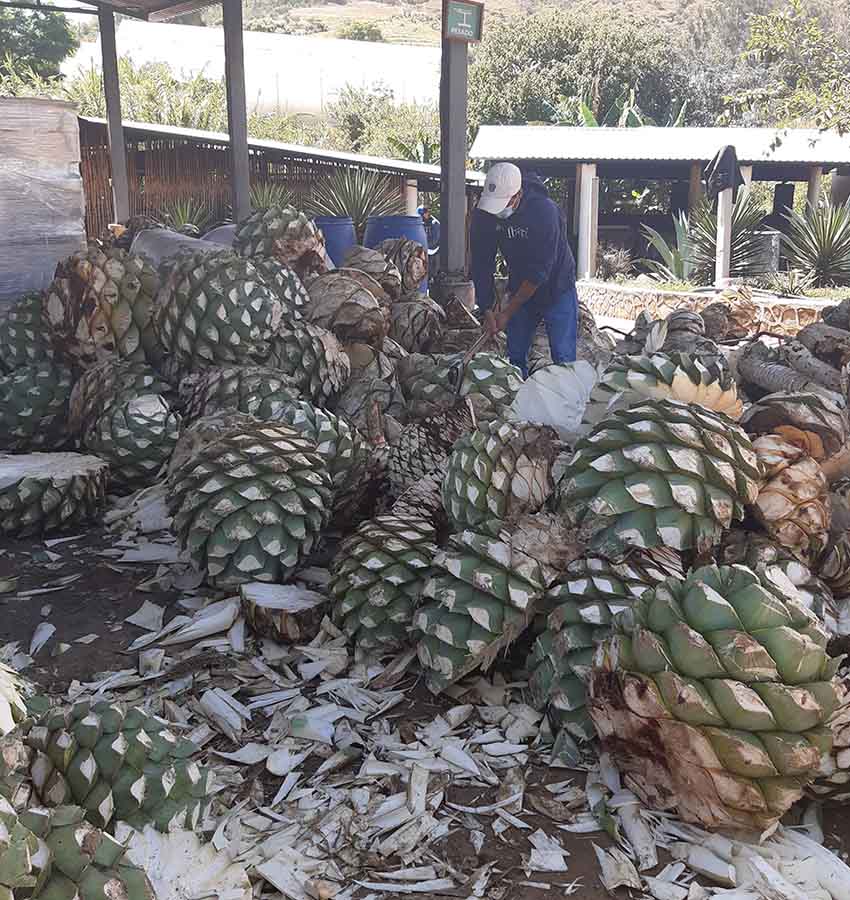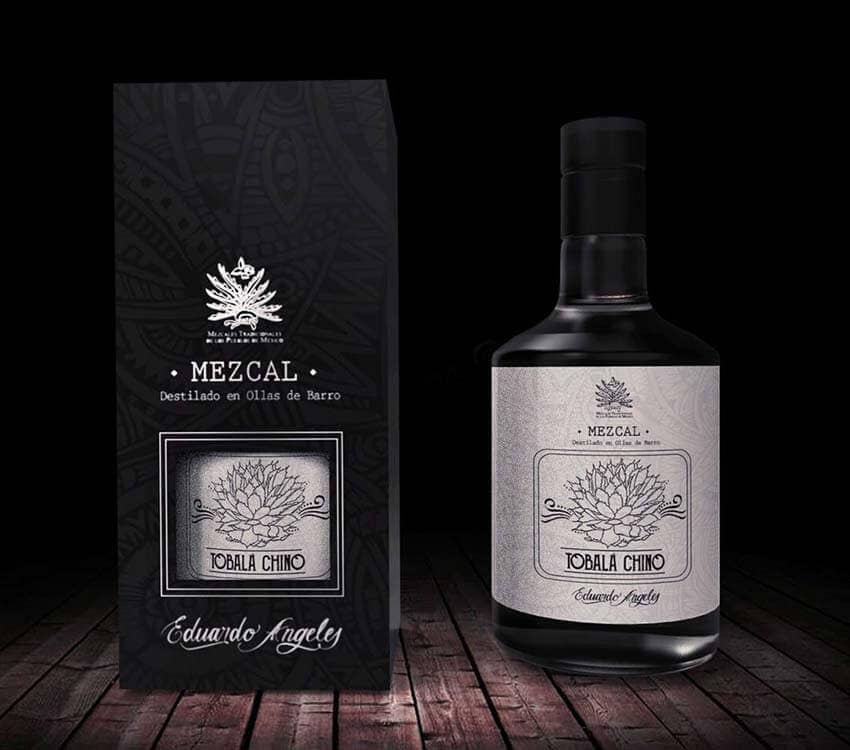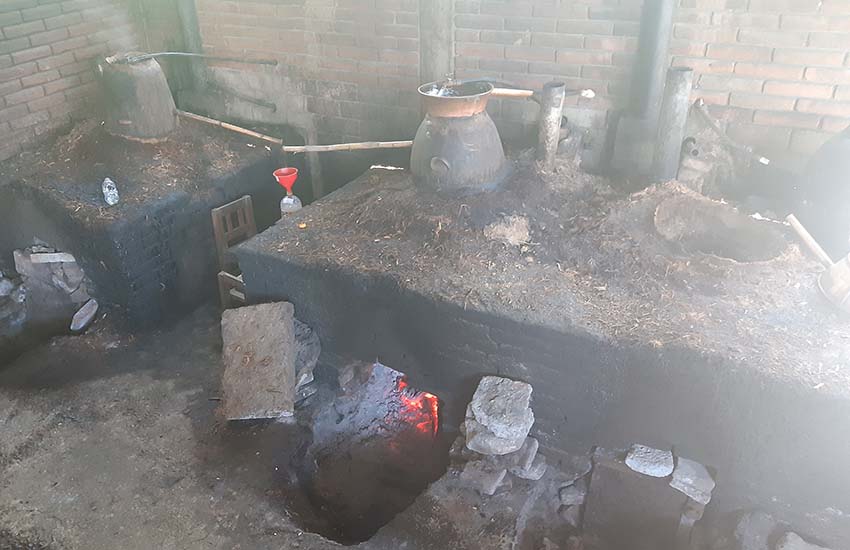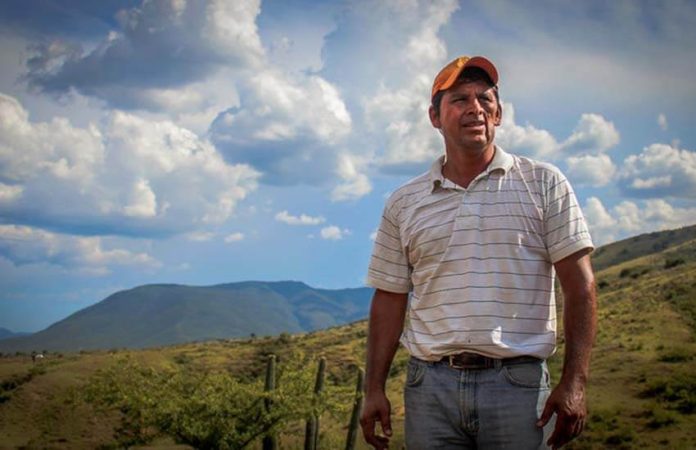When I first encountered the mezcal brand of Eduardo Javier Ángeles Carreño, I thought that its name, Lalocura, must come from the Spanish la locura (madness).
Actually, it is an amalgamation of Lalo and cura (meaning “Lalo cures” or “Lalo healing”). Angeles is known affectionately as “Lalo.”
There are two reasons for the name.
“I include my name because ours is a mezcal with identity,” he says. “When I make it, I express who I am as an individual and the place from where I come.”
That’s the first reason. The second is that mezcal is used as traditional medicine in the Central Valleys area of Oaxaca, including being used as a disinfectant.

Ángeles officially founded the brand in 2014, but his story goes back much further than that. He is a fourth-generation mezcal maker, with his family producing the spirit for over 100 years.
He learned the basics working with his late father, Lorenzo Ángeles, and had no doubt that he would produce mezcal himself. He decided to study agricultural engineering in college, and the result has been the introduction of scientific concepts to the family business but with the aim of keeping traditional mezcal production sustainable and economically viable.
The first indication of his dedication to sustainability is at the homestead itself: located in the small village of Santa Catarina Minas, south of Oaxaca city, Ángeles’ home, distillery and other structures are built with adobe bricks containing bagasso, which is spent agave fiber that is normally the waste from the mezcal fermentation process.
Production at Lalocura remains the same as how Ángeles’ great-grandparents did it: local agave species are used. The plants are cooked in wood-fired pits. The cooked agave mash is fermented with yeasts that fall in naturally from the environment, and batches are always small, no more than 2,000 liters at a time.
But Lalo’s scientific training is evident as well in Lalocura’s practices, especially in its agave cultivation. In the past, makers collected wild plants, and whatever was ready to use was cooked and mashed together. Lalocura takes far more care in agave cultivation and harvest, much the way grape species for wine are handled.
And, yes, different types of agave have rather distinctive tastes.

It is no longer viable to collect wild agave to make mezcal. Nature simply cannot produce enough, especially now that mezcal has attained international popularity. This means that Ángeles and other mezcal producers face two intertwined challenges: producing more agave and doing so sustainably, with minimal harm to the environment.
Agave reproduces in two ways, through seeds and through “pups” — small clones that grow from the mother plant’s root system. In the past, these pups were separated out to allow them to mature.
However, such plants grow nowhere near as large as those from seed, so Ángeles allows selected plants to go to seed, even though that means that they cannot be used for mezcal.
These seeds are genetically monitored for desired characteristics, and the seedlings from them are grown in nurseries, guarded by chickens and peacocks looking for any six-legged creatures that get past the screens protecting the plants. When the seedlings are large enough, they are planted in fields, where more domestic birds continue to tend to them. Fertilizer is provided by sheep and other farm animals fed the byproducts of agave and other crops grown among the massive plants on the more than 40 acres of farmland.
Organic agave farming means that plants take longer to mature — as little as six years and more than 30, depending on the species. But it results in a difference in taste, and organic practices make agave farming more sustainable in the long run.
Despite this, Lalocura is probably the only operation dedicated to this kind of farming in the area.

Lalocura is open to visitors, on the land adjacent to Lalo’s house. This area is only a small part of the palenque (a mezcal-producing operation), but it has been designed to educate visitors about all the processes that go into making mezcal, from planting to distillation. Workers here are highly knowledgeable; older ones have worked for the family for decades.
As mentioned earlier, different agave species produce different flavors. Lalocura produces two basic types: those using only one agave type and those that are blends called ensembles. Lalo’s knowledge of flavors and types rivals that of any wine connoisseur. Some bottles are quite expensive, but that is because they come from species that take a long time to mature.
In the end, Ángeles does not consider what he does to be particularly innovative; rather, he believes that he is fighting to preserve traditional mezcal production from “tequilafication.”
His biggest concern is what the popularity of mezcal could lead to: a growing market for mid-range and lower-priced mezcals pushing producers to industrialize — with all the cultural and environmental problems that can go with that.
Instead, Ángeles feels that it is important to educate the market about what real mezcal — “that with soul” — is about, in the hopes that traditional techniques and flavors can survive.
- You can find out more about Lalocura at their website.
Leigh Thelmadatter arrived in Mexico 18 years ago and fell in love with the land and the culture in particular its handcrafts and art. She is the author of Mexican Cartonería: Paper, Paste and Fiesta (Schiffer 2019). Her culture column appears regularly on Mexico News Daily.
